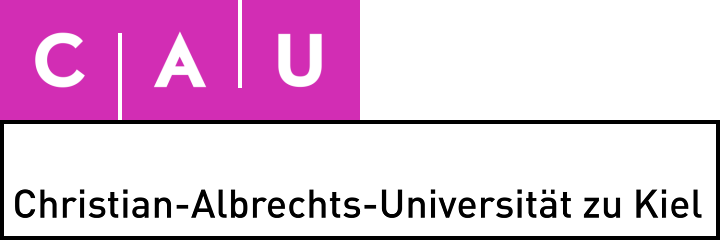Hands-on Science with CRC 1261 – Rent-a-Scientist in Action
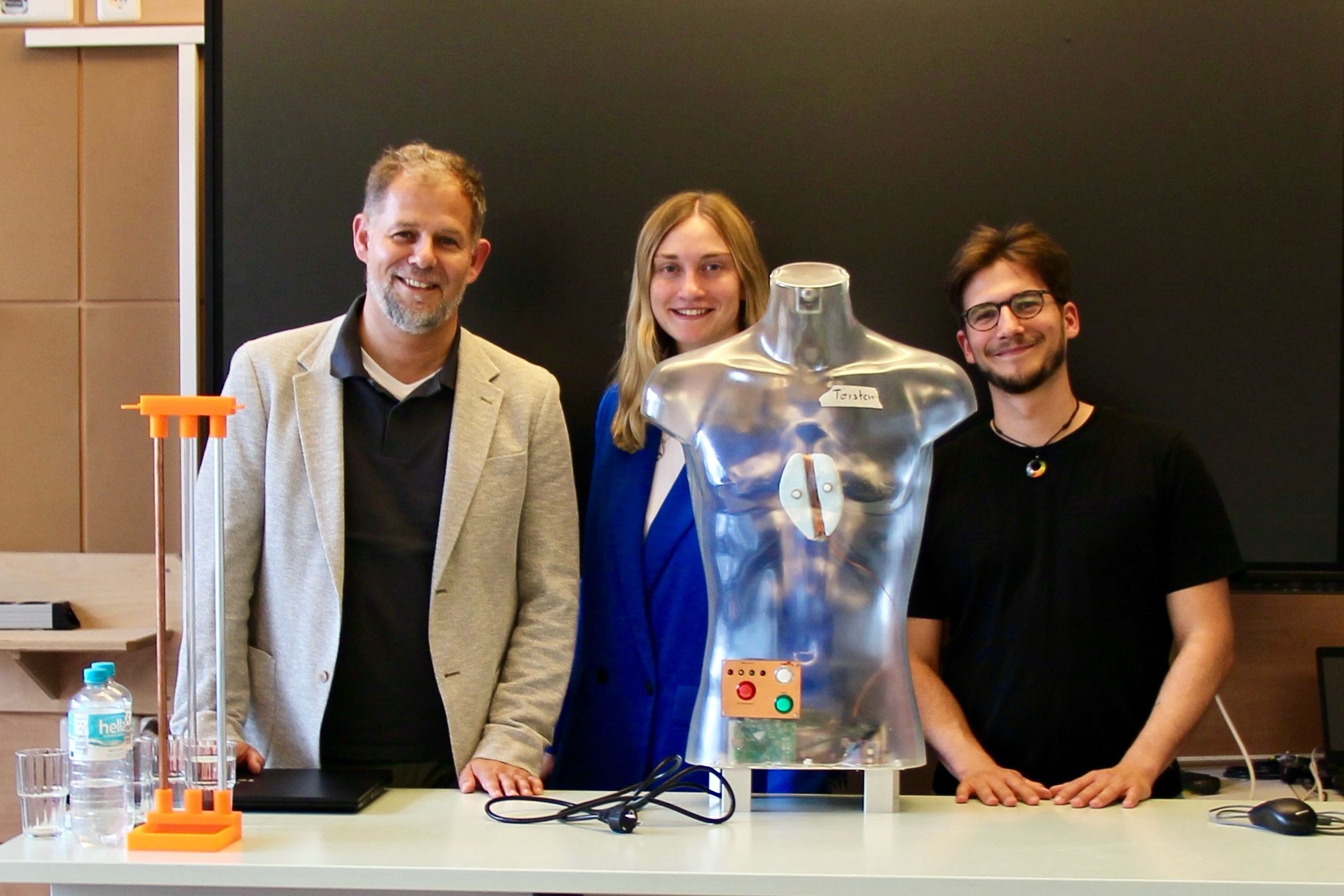 What do magnets have to do with medicine? Why is it possible to measure the heart not only using electric signals but also through magnetic fields? And what kind of work do engineers actually do on a day-to-day basis? These were just some of the questions explored during this summer’s outreach visits, part of the Rent-a-Scientist initiative organized by KielRegion.
What do magnets have to do with medicine? Why is it possible to measure the heart not only using electric signals but also through magnetic fields? And what kind of work do engineers actually do on a day-to-day basis? These were just some of the questions explored during this summer’s outreach visits, part of the Rent-a-Scientist initiative organized by KielRegion.
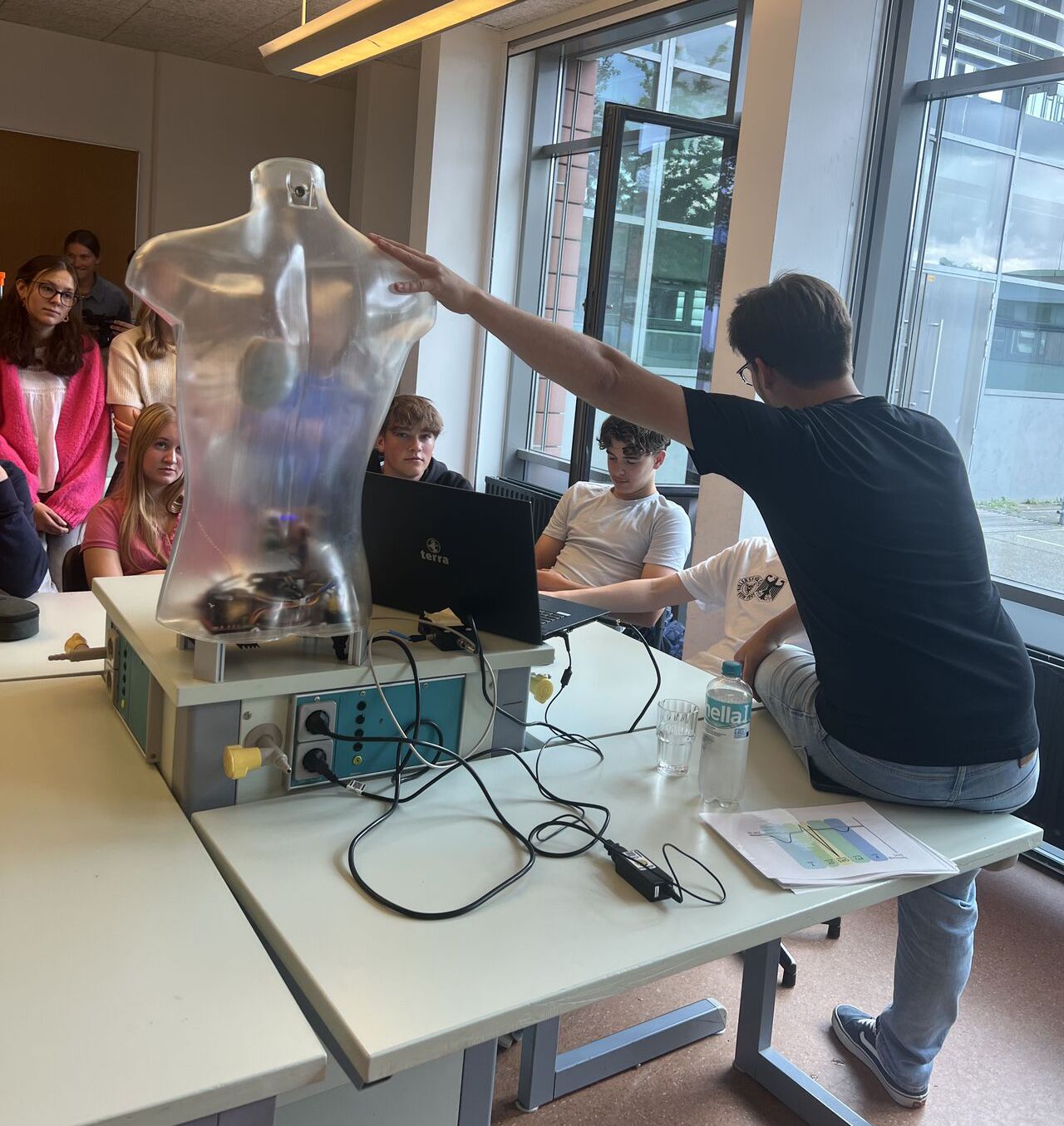 As part of this initiative, three enthusiastic representatives from CRC 1261 – doctoral researchers Lucie Bangert and Paul Diemel, along with spokesperson Prof. Gerhard Schmidt – visited two secondary schools in the region to engage with 8th and 9th-grade students. Through interactive experiments and lively discussions, they provided students with a rare, close-up look at the field of biomagnetic sensing and the exciting world of interdisciplinary scientific research.
As part of this initiative, three enthusiastic representatives from CRC 1261 – doctoral researchers Lucie Bangert and Paul Diemel, along with spokesperson Prof. Gerhard Schmidt – visited two secondary schools in the region to engage with 8th and 9th-grade students. Through interactive experiments and lively discussions, they provided students with a rare, close-up look at the field of biomagnetic sensing and the exciting world of interdisciplinary scientific research.
The primary goal of the visits was to inspire young people to consider careers in science and engineering by showing how dynamic and accessible these fields can be. By demonstrating practical applications – such as how piezoelectric materials work, how magnetocardiography can detect the heart’s magnetic signals, and how magnetic sensors are being used in cutting-edge medical technology – the sessions illustrated how research moves from theory to real-world use. Students not only had the opportunity to see complex scientific instruments in action, but they also gained insight into how physicists, engineers, and medical researchers collaborate to solve real problems.
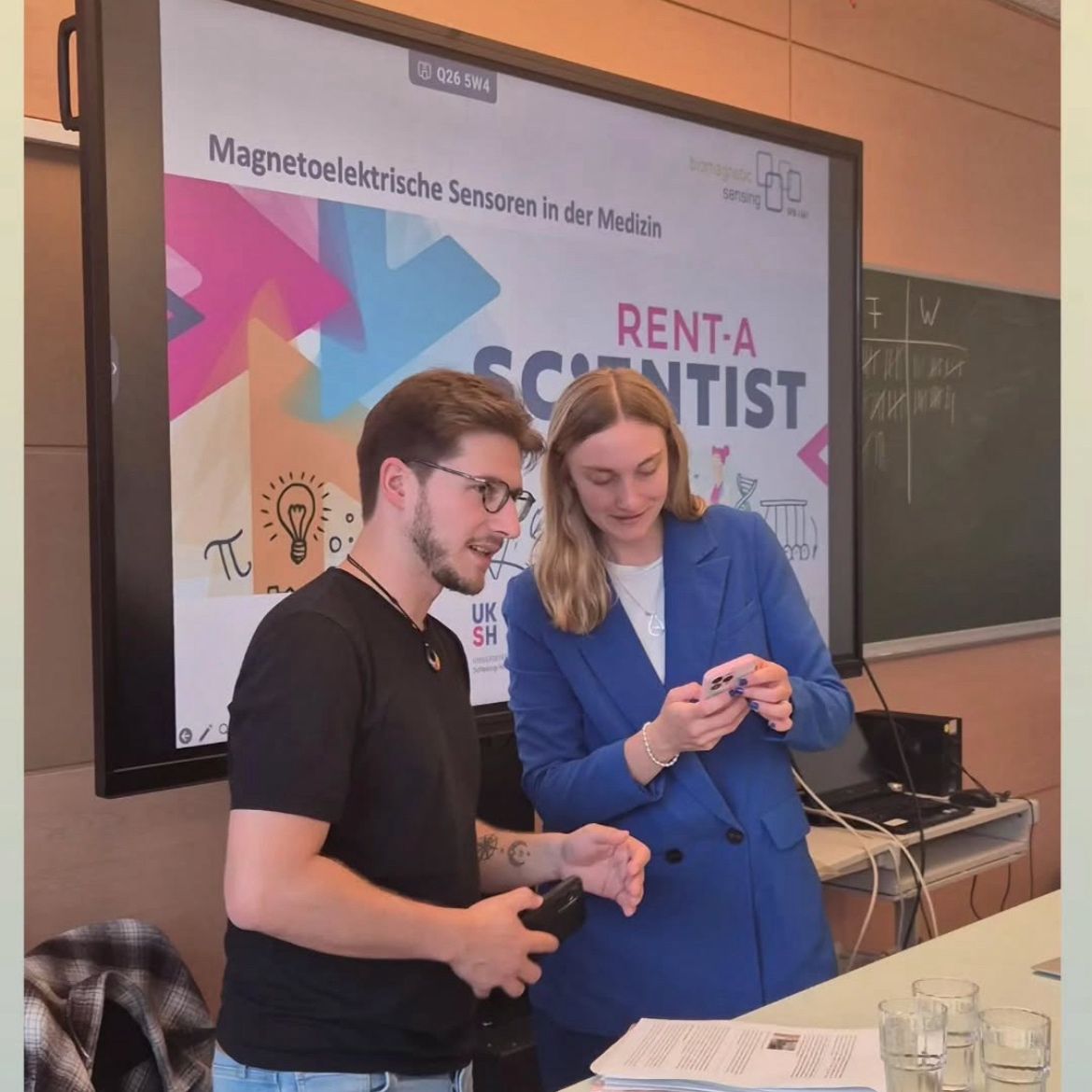 The event was accompanied by a film team that does a trailer on the entire Rent-a-Scientist program. Of course, we will let you know when the trailer is available.
The event was accompanied by a film team that does a trailer on the entire Rent-a-Scientist program. Of course, we will let you know when the trailer is available.
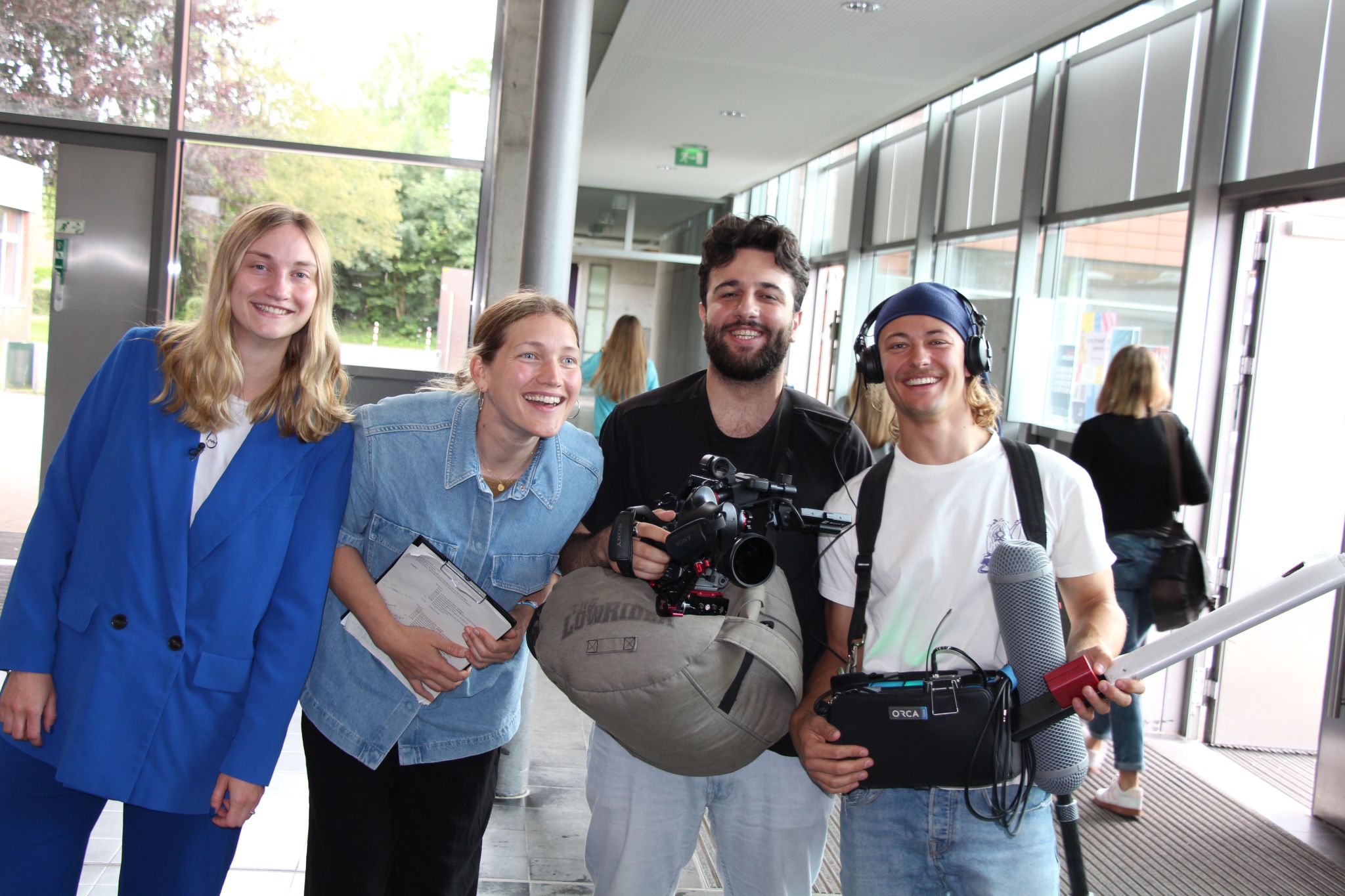 The visits sparked a great deal of curiosity and excitement among the students, who asked thoughtful questions and actively participated in the hands-on activities. Teachers also welcomed the initiative, noting how valuable it is to connect classroom learning with real-world scientific challenges and opportunities. The Rent-a-Scientist format provides a unique chance for students to meet working researchers and get a feel for what scientific work truly involves – beyond textbooks and exams.
The visits sparked a great deal of curiosity and excitement among the students, who asked thoughtful questions and actively participated in the hands-on activities. Teachers also welcomed the initiative, noting how valuable it is to connect classroom learning with real-world scientific challenges and opportunities. The Rent-a-Scientist format provides a unique chance for students to meet working researchers and get a feel for what scientific work truly involves – beyond textbooks and exams.
We extend our sincere thanks to the dedicated educators who made these visits possible, the students whose enthusiasm made the sessions a success, and the Rent-a-Scientist team for their coordination and support.
This engaging outreach effort is part of the Science Summer 2025 program and is proudly supported by the European Union through the Horizon Europe funding framework. Together, we’re working to promote scientific literacy, foster curiosity, and open doors to future innovation.

